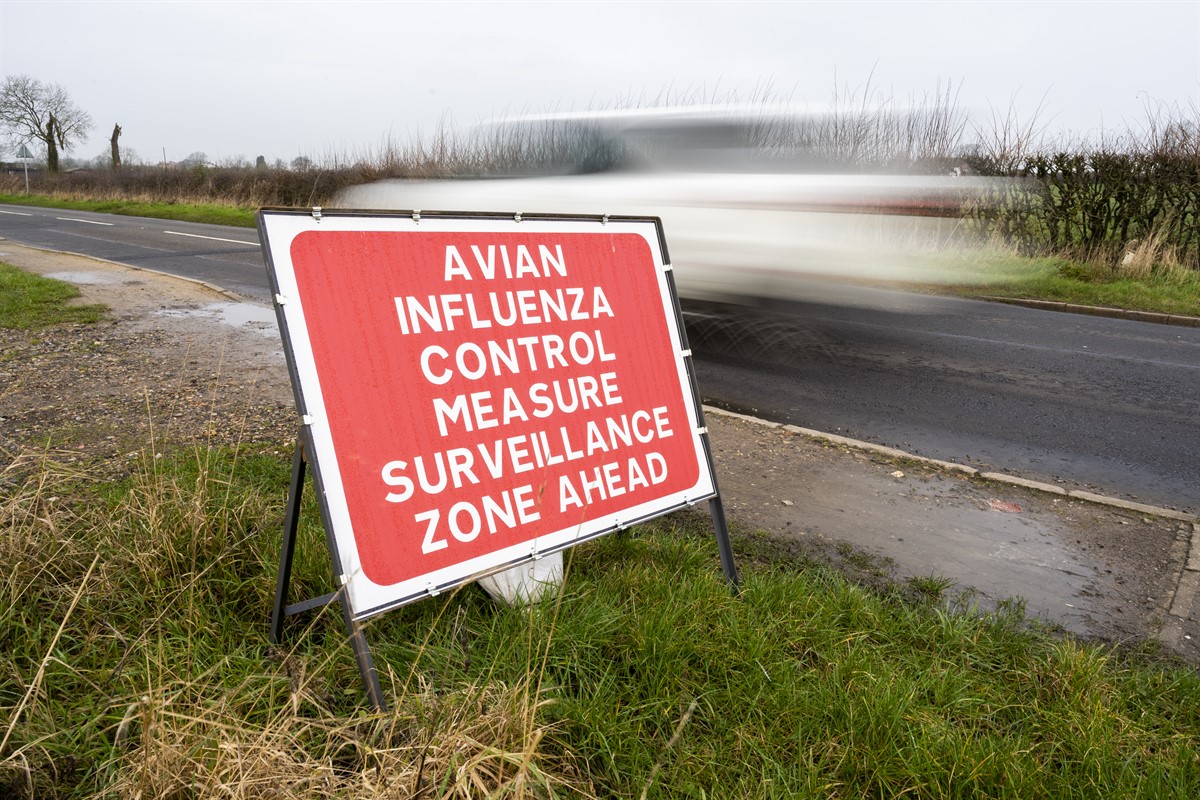This page is being updated regularly with information on the latest cases in Wales, including the restrictions that apply in the Disease Control Zones around the infected premises.
Housing measures
The mandatory housing measures which were in place across the UK since 29 November 2021 were lifted on Monday 2 May 2022. Poultry and other captive birds no longer need to be housed, unless they are in a Protection Zone.
Read more about this: Avian influenza housing measures lifted on 2 May.
Avian Influenza Protection Zone
The nationwide Avian Influenza Prevention Zone declared on 3 November 2021 was lifted on 16 August 2022. Poultry keepers within disease control zones will still need to comply with any additional biosecurity or housing measures in the declaration. The ban on poultry gatherings remains in place.
Risk of avian influenza
While the risk of avian influenza has been reduced to ‘low’ for premises with good biosecurity and ‘medium’ where biosecurity is suboptimal, the enhanced biosecurity requirements that were brought in as part of the Avian Influenza Prevention Zone (AIPZ) will remain in force as infection may still be circulating in the environment for several more weeks. All poultry gatherings will remain banned. More information on the current risk level can be found at the Gov.uk website: Avian influenza (bird flu): Risk level.
The latest information on avian influenza in wild birds can be found on the GOV.UK website: Avian influenza (bird flu): Wild birds in the UK.
Current cases
9 September 2022, Milford Haven
On 9 September 2022 highly pathogenic avian influenza (HPAI) H5N1 was confirmed at a premises near Milford Haven, Pembrokeshire. A 3km Protection Zone and 10km Surveillance Zone have been put in place around the infected premises (see below map).
You can check to see if you are in a Disease Control Zone by using the APHA’s interactive map.

5 September 2022, Near Arthog, Gwynedd
On 5 September 2022 highly pathogenic influenza (HPAI) H5N1 was confirmed at a premises near Arthog, Gwynedd, Wales. A 3km Protection Zone and 10km Surveillance Zone have been put in place around the premises (see below map).

Advice from the Deputy Chief Veterinary Officer for Wales, Dr Gavin Watkins:
“There has been an unprecedented incursion of avian influenza into Great Britain and Europe in 2022 and keepers of birds must be vigilant and ensure they have the very highest levels of biosecurity in place. There is always more that can be done to protect your birds.
“As we move into the Autumn and Winter, I urge you all to review the measures you have in place and identify areas of improvement. Think about risks from direct contact with wild birds, especially waterfowl, and also the things that could be contaminated by bird droppings – clothing and footwear, equipment, vehicles, feed and bedding. Make improvements where you can to prevent further spread of this devastating bird disease.
“Good biosecurity is always key in protecting animals from disease.”
What to do with a suspected case of Avian Influenza?
People should report dead birds and suspicion of avian influenza to the Defra helpline on 03459 33 55 77.
These may be collected for examination and avian influenza surveillance, depending on the species and location. Further information on how to report and dispose dead wild birds can be found here
It is important not to pick up or touch any sick or dead bird.
An interactive map of avian influenza disease control zones currently in place across GB can be found here.
Responsibilities of people who keep birds
- All keepers of kept birds should be vigilant for signs of the disease such as increased mortality, respiratory distress and drops in food or water intake, or egg production.
- Consult your veterinary surgeon in the first instance if your birds are unwell.
- If you or your vet suspect that avian influenza could be causing illness in your birds, you must, by law, report this to the Animal and Plant Health Agency. This will trigger a disease investigation by APHA vets.
- You must apply strict biosecurity measures to prevent any materials, equipment, vehicles, clothing, feed or bedding that could have been contaminated from wild birds coming onto your premises. Full details and checklist is available here: https://gov.wales/biosecurity-and-preventing-disease-captive-birds
Advice for the general public
- Wash, and if possible disinfect, footwear and hands before leaving places with large number of wildfowl – eg parks and bird reserves
- Report (but do not touch) dead birds.
- Continue to feed garden birds, taking basic hygiene precautions such as washing hands after touching feeding stations, and keeping them clean.
